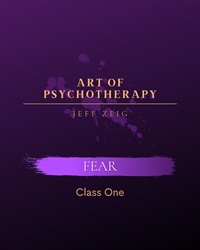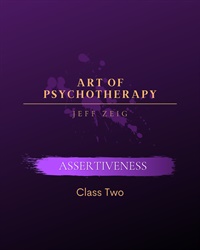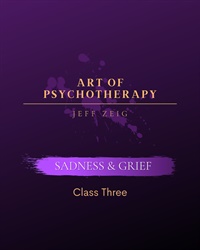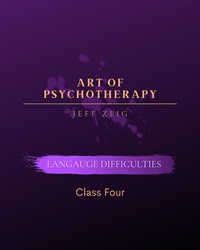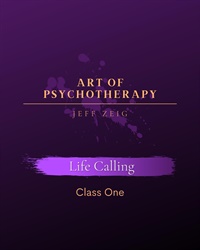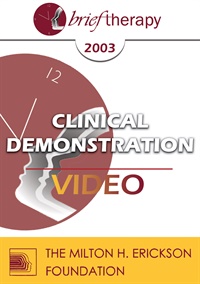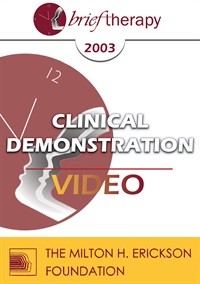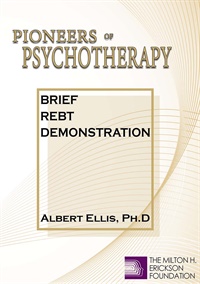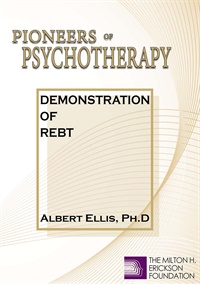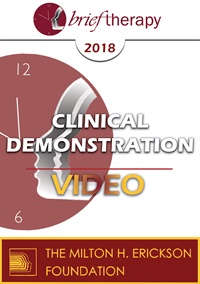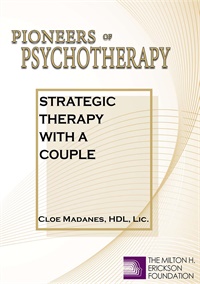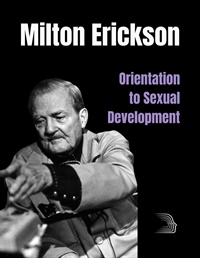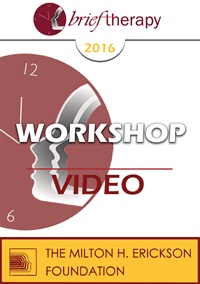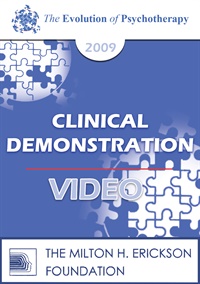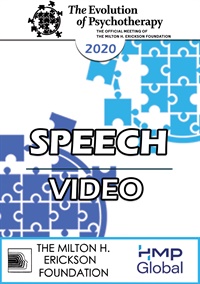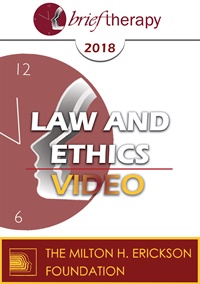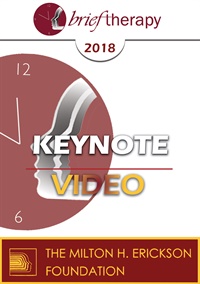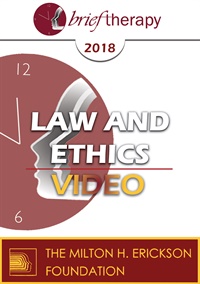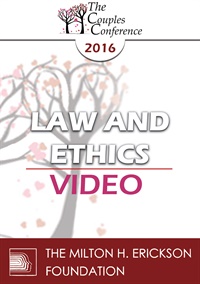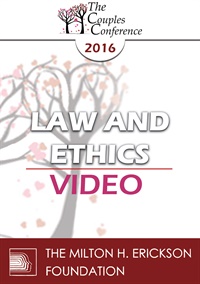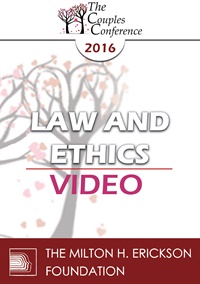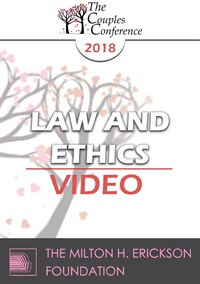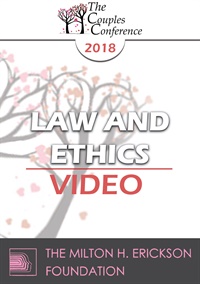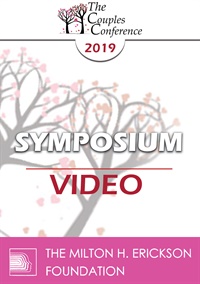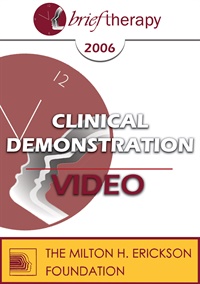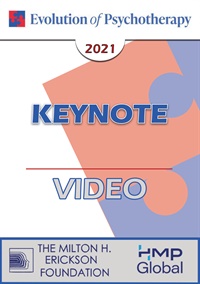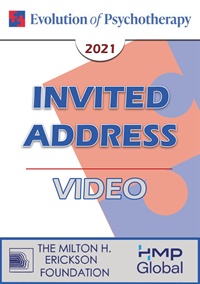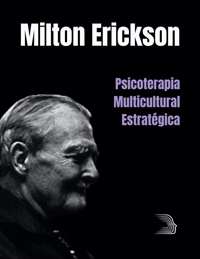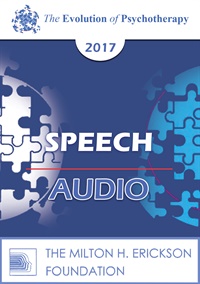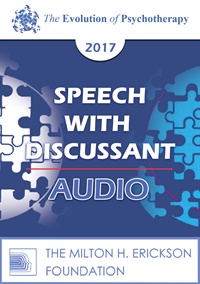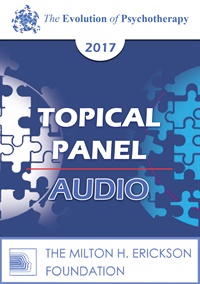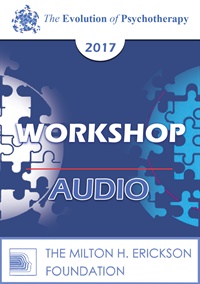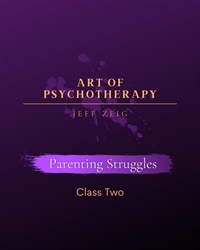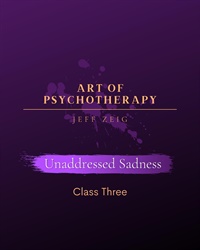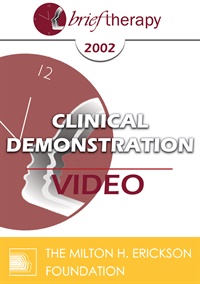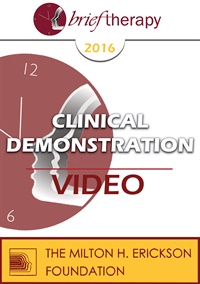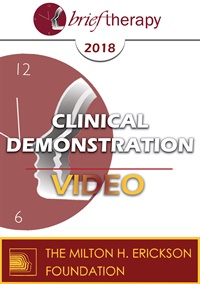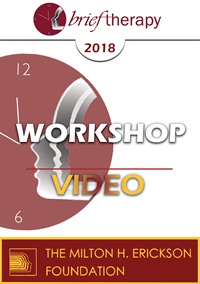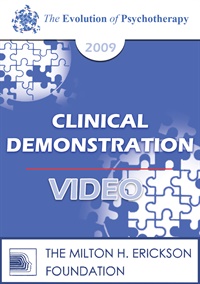Therapist Development
This collection focuses on specific ways that you can improve your therapeutic practice. Whether that means incorporating a more artistic approach, managing homework assignments, improving empathy, or increasing creativity, you'll find a wide array of inspiration here.
Art of Psychotherapy
Groundbreaking educational series only found at the Erickson Foundation. Renowned psychotherapist Jeffrey Zeig conducts a live clinical demonstration of a brief psychotherapy session. Each session Dr. Zeig spends an hour working with a new client. After each session, there is a discussion of the techniques and approaches used in the session.
Art of Psychotherapy Recordings
- Categories:
- Art of Psychotherapy
- Faculty:
- Jeffrey Zeig, PhD
- Duration:
- 2 Hours 5 Minutes
- Format:
- Audio and Video
- Average Rating:
- Not yet rated
- Price:
- $79.00 - Base Price
- Categories:
- Art of Psychotherapy
- Faculty:
- Jeffrey Zeig, PhD
- Duration:
- 2 Hours 25 Minutes
- Format:
- Audio and Video
- Average Rating:
- Not yet rated
- Price:
- $79.00 - Base Price
- Categories:
- Art of Psychotherapy
- Faculty:
- Jeffrey Zeig, PhD
- Duration:
- 2 hours 22 minutes
- Format:
- Audio and Video
- Average Rating:
- Not yet rated
- Price:
- $79.00 - Base Price
- Categories:
- Art of Psychotherapy
- Faculty:
- Jeffrey Zeig, PhD
- Duration:
- 2 Hours 15 Minutes
- Format:
- Audio and Video
- Average Rating:
- Not yet rated
- Price:
- $79.00 - Base Price
- Categories:
- Art of Psychotherapy
- Faculty:
- Jeffrey Zeig, PhD
- Duration:
- 2 Hours 22 Minutes
- Format:
- Audio and Video
- Average Rating:
- Not yet rated
- Price:
- $79.00 - Base Price
Attunement
A definition of attunement ‘is a kinesthetic and emotional sensing of others knowing their rhythm, affect and experience by metaphorically being in their skin, and going beyond empathy to create a two-person experience of unbroken feeling connectedness by providing a reciprocal affect and/or resonating response’. (Erksine 1998). One could say it is our ability to be present to, and with, another’s expression of their experience.
Attunement Recordings
- Categories:
- Brief Therapy Conference | Brief Therapy Conference 2003
- Faculty:
- Michael Yapko, PhD
- Duration:
- 56:22
- Format:
- Audio and Video
- Average Rating:
- Not yet rated
- Price:
- $29.00 - Sale Base Price - $59.00
- Categories:
- Couples Conference | Couples Conference 2012
- Faculty:
- John Gottman, PhD
- Duration:
- 1:47:47
- Format:
- Audio and Video
- Average Rating:
- Not yet rated
- Price:
- $29.00 - Sale Base Price - $59.00
- Categories:
- Anxiety and Depression Conference 2025
- Faculty:
- David Burns, MD
- Duration:
- 1:49:03
- Format:
- Audio and Video
- Average Rating:
- Not yet rated
- Price:
- $59.00 - Base Price
- Categories:
- Brief Therapy Conference | Brief Therapy Conference 2003
- Faculty:
- Pat Love, EdD
- Duration:
- 52:00
- Format:
- Audio and Video
- Average Rating:
- Not yet rated
- Price:
- $29.00 - Sale Base Price - $59.00
- Categories:
- Couples Conference | Couples Conference 2012
- Faculty:
- John Gottman, PhD
- Duration:
- 2:53:23
- Format:
- Audio and Video
- Average Rating:
- Not yet rated
- Price:
- $29.00 - Sale Base Price - $59.00
Humor
There is abundant evidence that documents positive physical and psychological health benefits of humor. The power of humor allows us to create rapport with the client, helping to put them at ease. You don't have to be a comedian to use humor effectively in therapy, and we can show you how.
Humor Recordings
- Categories:
- Pioneers of Psychotherapy | Evolution of Psychotherapy | Evolution of Psychotherapy 2000
- Faculty:
- Albert Ellis, PhD
- Duration:
- 00:51:00
- Format:
- Audio and Video
- Average Rating:
- Not yet rated
- Price:
- $59.00 - Base Price
- Categories:
- Pioneers of Psychotherapy | Evolution of Psychotherapy | Evolution of Psychotherapy 1995
- Faculty:
- Albert Ellis, PhD
- Duration:
- 01:01:00
- Format:
- Audio and Video
- Average Rating:
- Not yet rated
- Price:
- $59.00 - Base Price
- Categories:
- Brief Therapy Conference | Brief Therapy Conference 2018 | Online Continuing Education
- Faculty:
- Reid Wilson, PhD
- Duration:
- 1:00:23
- Format:
- Audio and Video
- Average Rating:
- Not yet rated
- Price:
- $29.00 - Sale Base Price - $59.00
- Categories:
- Pioneers of Psychotherapy | Evolution of Psychotherapy | Evolution of Psychotherapy 2009 | Pioneers in Couples and Family Therapy
- Faculty:
- Cloe Madanes, HDL, LIC
- Duration:
- 00:57:00
- Format:
- Audio and Video
- Average Rating:
- Not yet rated
- Price:
- $59.00 - Base Price
- Categories:
- Erickson Materials | Erickson Streaming Video Collection | Milton H. Erickson Collections | Online Continuing Education
- Faculty:
- Jeffrey Zeig, PhD | Milton H. Erickson, MD
- Duration:
- 1 hour
- Format:
- Audio and Video
- Average Rating:
- Not yet rated
- Price:
- $19.95 - Base Price
- Categories:
- Brief Therapy Conference | Brief Therapy Conference 2016
- Faculty:
- Lynn Lyons, LICSW
- Duration:
- 2:47:32
- Format:
- Audio and Video
- Average Rating:
- Not yet rated
- Price:
- $29.95 - Sale Base Price - $59.00
- Categories:
- Evolution of Psychotherapy | Evolution of Psychotherapy 2009 | Pioneers in Couples and Family Therapy
- Faculty:
- Cloe Madanes, HDL, LIC
- Duration:
- 55:41
- Format:
- Audio and Video
- Average Rating:
- Not yet rated
- Price:
- $29.00 - Sale Base Price - $59.00
- Categories:
- Evolution of Psychotherapy | Evolution of Psychotherapy 2020
- Faculty:
- Michael Yapko, PhD
- Duration:
- 1 hour
- Format:
- Audio and Video
- Average Rating:
- Not yet rated
- Price:
- $29.00 - Sale Base Price - $59.00
- Categories:
- Evolution of Psychotherapy | Evolution of Psychotherapy 1985 | Pioneers in Couples and Family Therapy
- Faculty:
- Carl Whitaker, MD
- Duration:
- 52:53
- Format:
- Audio and Video
- Average Rating:
- Not yet rated
- Price:
- $29.00 - Sale Base Price - $59.00
- Categories:
- Evolution of Psychotherapy | Evolution of Psychotherapy 1985 | Pioneers in Couples and Family Therapy
- Faculty:
- Carl Whitaker, MD | Albert Ellis, PhD
- Duration:
- 1:28:51
- Format:
- Audio and Video
- Average Rating:
- Not yet rated
- Price:
- $29.00 - Sale Base Price - $59.00
Law and Ethics
Conducting therapy sessions is one part of being a therapist. However, there are myriad legal and ethical issues that health practitioners of all disciplines should be cognizant of. Topics range from confidentiality, privilege, record keeping, coping with subpoenas, dealing with complaints and ideally avoiding complaints in the first place with best practices.
Law and Ethics Recordings
- Categories:
- Brief Therapy Conference | Brief Therapy Conference 2018
- Faculty:
- A. Steven Frankel, PhD, JD, ABPP
- Duration:
- 1:51:51
- Format:
- Audio and Video
- Average Rating:
- Not yet rated
- Price:
- $29.00 - Sale Base Price - $59.00
- Categories:
- Brief Therapy Conference | Brief Therapy Conference 2018 | Online Continuing Education
- Faculty:
- Patricia Arredondo, EdD
- Duration:
- 1:03:49
- Format:
- Audio and Video
- Average Rating:
- Not yet rated
- Price:
- $29.00 - Sale Base Price - $59.00
- Categories:
- Brief Therapy Conference | Brief Therapy Conference 2018
- Faculty:
- A. Steven Frankel, PhD, JD, ABPP
- Duration:
- 3:14:00
- Format:
- Audio and Video
- Average Rating:
- Not yet rated
- Price:
- $29.00 - Sale Base Price - $59.00
- Categories:
- Couples Conference | Couples Conference 2016
- Faculty:
- A. Steven Frankel, PhD, JD, ABPP
- Duration:
- 01:27:40
- Format:
- Audio and Video
- Average Rating:
- Not yet rated
- Price:
- $29.00 - Sale Base Price - $59.00
- Categories:
- Couples Conference | Couples Conference 2016
- Faculty:
- A. Steven Frankel, PhD, JD, ABPP
- Duration:
- 02:05:42
- Format:
- Audio and Video
- Average Rating:
- Not yet rated
- Price:
- $29.00 - Sale Base Price - $59.00
- Categories:
- Couples Conference | Couples Conference 2016
- Faculty:
- A. Steven Frankel, PhD, JD, ABPP
- Duration:
- 01:51:56
- Format:
- Audio and Video
- Average Rating:
- Not yet rated
- Price:
- $29.00 - Sale Base Price - $59.00
- Categories:
- Couples Conference | Couples Conference 2017 | Pioneers in Couples and Family Therapy
- Faculty:
- Janis Abrahms Spring, PhD, ABPP | Ellyn Bader, PhD | Sue Diamond, MA, RCC
- Duration:
- 58:21
- Format:
- Audio and Video
- Average Rating:
- Not yet rated
- Price:
- $29.00 - Sale Base Price - $59.00
- Categories:
- Couples Conference | Couples Conference 2018 | Online Continuing Education
- Faculty:
- A. Steven Frankel, PhD, JD, ABPP
- Duration:
- 3:33:07
- Format:
- Audio and Video
- Average Rating:
- Not yet rated
- Price:
- $0.00 - $29.00
- Categories:
- Couples Conference | Couples Conference 2018 | Online Continuing Education
- Faculty:
- A. Steven Frankel, PhD, JD, ABPP
- Duration:
- 1:09:54
- Format:
- Audio and Video
- Average Rating:
- Not yet rated
- Price:
- $29.00 - Sale Base Price - $59.00
- Categories:
- Couples Conference | Couples Conference 2019 | Online Continuing Education | Pioneers in Couples and Family Therapy
- Faculty:
- Ellyn Bader, PhD | Terry Real, LICSW | Carrie Cole, M.Ed, LPC | Donald Cole, DMIN, LPC, LMFT
- Duration:
- 1:08:01
- Format:
- Audio and Video
- Average Rating:
- Not yet rated
- Price:
- $29.00 - Sale Base Price - $59.00
Multicultural Considerations
Multicultural competency is become a more and more important facet in every therapist’s toolbox. Multicultural education allows therapists to hone their critical thinking skills on topics surrounding cultural and social issues like institutional racism, classism, and sexism. The goal of multicultural education is to help clear up misconceptions people may have towards certain cultural groups and backgrounds, helping to eradicate the stigma placed on these groups. Some of the most difficult but most necessary work in multicultural education involves helping those who are used to being in charge learn to listen to and take seriously those they have learned to dismiss.
Multicultural Recordings
- Categories:
- Brief Therapy Conference | Brief Therapy Conference 2006
- Faculty:
- Kenneth Hardy, PhD
- Duration:
- 56:00
- Format:
- Audio and Video
- Average Rating:
- Not yet rated
- Price:
- $29.00 - Sale Base Price - $59.00
- Categories:
- Couples Conference | Couples Conference 2016 | Pioneers in Couples and Family Therapy
- Faculty:
- Ellyn Bader, PhD | Esther Perel, MA, LMFT | Terry Real, LICSW
- Duration:
- 01:07:58
- Format:
- Audio and Video
- Average Rating:
- Not yet rated
- Price:
- $29.00 - Sale Base Price - $59.00
- Categories:
- Evolution of Psychotherapy | Evolution of Psychotherapy 2021
- Faculty:
- Derald Wing Sue, PhD
- Duration:
- 1 hour
- Format:
- Audio and Video
- Average Rating:
- Not yet rated
- Price:
- $59.00 - Base Price
- Categories:
- Evolution of Psychotherapy | Evolution of Psychotherapy 2013
- Faculty:
- Robert Dilts, BA | Derald Wing Sue, PhD | Bessel van der Kolk, MD
- Duration:
- 57:48
- Format:
- Audio and Video
- Average Rating:
- Not yet rated
- Price:
- $29.00 - Sale Base Price - $59.00
- Categories:
- Evolution of Psychotherapy | Evolution of Psychotherapy 2021
- Faculty:
- Helen Neville
- Duration:
- 1 hour
- Format:
- Audio and Video
- Average Rating:
- Not yet rated
- Price:
- $59.00 - Base Price
- Categories:
- Erickson Streaming Video Collection | Erickson Materials | Milton H. Erickson Collections | Spanish | World Languages
- Faculty:
- Jeffrey Zeig, PhD | Milton H. Erickson, MD
- Duration:
- 59 Minutes
- Format:
- Audio and Video
- Average Rating:
- Not yet rated
- Price:
- $19.95 - Base Price
- Categories:
- Evolution of Psychotherapy | Evolution of Psychotherapy 2017
- Faculty:
- Derald Wing Sue, PhD
- Duration:
- 55:44
- Format:
- Audio Only
- Average Rating:
- Not yet rated
- Price:
- $15.00 - Base Price
- Categories:
- Evolution of Psychotherapy | Evolution of Psychotherapy 2017 | Pioneers in Couples and Family Therapy
- Faculty:
- Harville Hendrix, PhD | Helen LaKelly Hunt, PhD | Harriet Lerner, PhD
- Duration:
- 1:33:34
- Format:
- Audio Only
- Average Rating:
- Not yet rated
- Price:
- $15.00 - Base Price
- Categories:
- Evolution of Psychotherapy | Evolution of Psychotherapy 2017
- Faculty:
- Esther Perel, MA, LMFT | Derald Wing Sue, PhD | Robert Dilts, BA
- Duration:
- 1:01:59
- Format:
- Audio Only
- Average Rating:
- Not yet rated
- Price:
- $15.00 - Base Price
- Categories:
- Evolution of Psychotherapy | Evolution of Psychotherapy 2017
- Faculty:
- Jean Houston, PhD
- Duration:
- 2:51:28
- Format:
- Audio Only
- Average Rating:
- Not yet rated
- Price:
- $15.00 - Base Price
Therapeutic Relationship
The therapeutic relationship refers to the relationship between a healthcare professional and a client or patient. It is the means by which a therapist and a client hope to engage with each other and effect beneficial change in the client. Developing a good working relationship with the client or patient is an essential step to building a rapport.
Therapeutic Relationship Recordings
- Categories:
- Art of Psychotherapy
- Faculty:
- Jeffrey Zeig, PhD
- Duration:
- 2 Hours 18 Minutes
- Format:
- Audio and Video
- Average Rating:
- Not yet rated
- Price:
- $79.00 - Base Price
- Categories:
- Art of Psychotherapy
- Faculty:
- Jeffrey Zeig, PhD
- Duration:
- 2 Hours 15 Minutes
- Format:
- Audio and Video
- Average Rating:
- Not yet rated
- Price:
- $79.00 - Base Price
- Categories:
- Brief Therapy Conference | Brief Therapy Conference 2002
- Faculty:
- Mary Goulding, MSW
- Duration:
- 54:41
- Format:
- Audio and Video
- Average Rating:
- Not yet rated
- Price:
- $29.00 - Sale Base Price - $59.00
- Categories:
- Brief Therapy Conference | Brief Therapy Conference 2016
- Faculty:
- Michael Yapko, PhD
- Duration:
- 59:00
- Format:
- Audio and Video
- Average Rating:
- Not yet rated
- Price:
- $29.00 - Sale Base Price - $59.00
- Categories:
- Brief Therapy Conference | Brief Therapy Conference 2012
- Faculty:
- Erving Polster, PhD
- Duration:
- 2:25:14
- Format:
- Audio and Video
- Average Rating:
- Not yet rated
- Price:
- $29.00 - Sale Base Price - $59.00
- Categories:
- Brief Therapy Conference | Brief Therapy Conference 2014
- Faculty:
- Michael Yapko, PhD
- Duration:
- 55:44
- Format:
- Audio and Video
- Average Rating:
- Not yet rated
- Price:
- $29.00 - Sale Base Price - $59.00
- Categories:
- Brief Therapy Conference | Brief Therapy Conference 2018 | Online Continuing Education
- Faculty:
- Camillo Loriedo, MD, PhD
- Duration:
- 1:03:30
- Format:
- Audio and Video
- Average Rating:
- Not yet rated
- Price:
- $29.00 - Sale Base Price - $59.00
- Categories:
- Brief Therapy Conference | Brief Therapy Conference 2018 | Online Continuing Education
- Faculty:
- Stephen Gilligan, PhD
- Duration:
- 2:00:04
- Format:
- Audio and Video
- Average Rating:
- Not yet rated
- Price:
- $29.00 - Sale Base Price - $59.00
- Categories:
- Evolution of Psychotherapy | Evolution of Psychotherapy 2009
- Faculty:
- Erving Polster, PhD
- Duration:
- 59:32
- Format:
- Audio and Video
- Average Rating:
- Not yet rated
- Price:
- $29.00 - Sale Base Price - $59.00
- Categories:
- Evolution of Psychotherapy | Evolution of Psychotherapy 2005
- Faculty:
- James F. Masterson, MD
- Duration:
- 2:39:20
- Format:
- Audio and Video
- Average Rating:
- Not yet rated
- Price:
- $29.00 - Sale Base Price - $59.00
All Therapist Development
- Art of Psychotherapy
- Art and Creativity
- Attunement
- Brief Therapy
- Burnout
- Dreamwork
- Empathy
- Humor
- Improvisation
- Law and Ethics
- Meditation, Spirituality and Yoga
- Mindfulness
- Multicultural
- Reframing
- Self-Care
- Single Session Therapy
- Somatic Experiences
- Supervision
- Therapeutic Relationship
- Transference
- Treatment Planning
- Average Rating:
- Not yet rated
- Topic Areas:
- Experiential Therapy | Clinical Demonstrations | Phobia | Psychotherapy | Therapist Development | Art and Creativity | Ericksonian Psychotherapy | Art of Psychotherapy
- Bundle(s):
- Art of Psychotherapy - Experiential Series
- Categories:
- Art of Psychotherapy
- Faculty:
- Jeffrey Zeig, PhD
- Duration:
- 2 Hours 5 Minutes
- Format:
- Audio and Video
- Original Program Date:
- May 17, 2020
- Short Description:
- The presenting problem for Class 1 is fear.
- Price:
- $79.00 - Base Price
- Average Rating:
- Not yet rated
- Topic Areas:
- Clinical Demonstrations | Experiential Therapy | Psychotherapy | Therapist Development | Art and Creativity | Ericksonian Psychotherapy | Art of Psychotherapy
- Bundle(s):
- Art of Psychotherapy - Experiential Series
- Categories:
- Art of Psychotherapy
- Faculty:
- Jeffrey Zeig, PhD
- Duration:
- 2 Hours 25 Minutes
- Format:
- Audio and Video
- Original Program Date:
- May 24, 2020
- Short Description:
- Our demonstration subject for Class 2 is a psychiatrist who would like to become a better leader.
- Price:
- $79.00 - Base Price
- Average Rating:
- Not yet rated
- Topic Areas:
- Clinical Demonstrations | Experiential Therapy | Grief | Psychotherapy | Therapist Development | Art and Creativity | Ericksonian Psychotherapy | Art of Psychotherapy
- Bundle(s):
- Art of Psychotherapy - Experiential Series
- Categories:
- Art of Psychotherapy
- Faculty:
- Jeffrey Zeig, PhD
- Duration:
- 2 hours 22 minutes
- Format:
- Audio and Video
- Original Program Date:
- May 31, 2020
- Short Description:
- The presenting problem for Class 3 is an issue with expressing sadness and grief.
- Price:
- $79.00 - Base Price
- Average Rating:
- Not yet rated
- Topic Areas:
- Clinical Demonstrations | Experiential Therapy | Psychotherapy | Therapist Development | Art and Creativity | Ericksonian Psychotherapy | Art of Psychotherapy
- Bundle(s):
- Art of Psychotherapy - Experiential Series
- Categories:
- Art of Psychotherapy
- Faculty:
- Jeffrey Zeig, PhD
- Duration:
- 2 Hours 15 Minutes
- Format:
- Audio and Video
- Original Program Date:
- Jun 07, 2020
- Short Description:
- In our final class of this series, our demonstration subject has an impediment in learning the German language.
- Price:
- $79.00 - Base Price
- Average Rating:
- Not yet rated
- Topic Areas:
- Utilization | Clinical Demonstrations | Psychotherapy | Therapist Development | Anxiety | Ericksonian Hypnosis and Therapy Techniques | Religion | Art of Psychotherapy
- Bundle(s):
- Art of Psychotherapy - Utilization Series
- Categories:
- Art of Psychotherapy
- Faculty:
- Jeffrey Zeig, PhD
- Duration:
- 2 Hours 22 Minutes
- Format:
- Audio and Video
- Original Program Date:
- Jun 21, 2020
- Short Description:
- In our first session, our demonstration subject has recently made a major life change. They have decided to change their career from being a priest, into becoming a therapist. Big life changes like these often induce anxiety in patients, and in this clinical demonstration we see Dr. Jeffrey Zeig exhibit a number of Ericksonian techniques to help the client be in harmony with themselves. Dr. Zeig utilizes some of Ginny’s religious history to help guide her towards transformation.
- Price:
- $79.00 - Base Price
- Average Rating:
- Not yet rated
- Topic Areas:
- Utilization | Clinical Demonstrations | Psychotherapy | Therapist Development | Children and Adolescent Therapy | Interviewing | Relationships | Therapeutic Relationship
- Bundle(s):
- Art of Psychotherapy - Utilization Series
- Categories:
- Art of Psychotherapy
- Faculty:
- Jeffrey Zeig, PhD
- Duration:
- 2 Hours 18 Minutes
- Format:
- Audio and Video
- Original Program Date:
- Jun 28, 2020
- Short Description:
- Demonstration subject Mette is struggling with issues trying to feel an emotional connection to her children. She describes her difficulty with being present for her children, and is looking for guidance. Dr. Zeig exhibits a few simple techniques that help create a powerful therapeutic relationship quickly, through the use of gestures and strategic interview questions. Dr. Zeig is able to utilize this information to create useful suggestions to help Mette with her situation.
- Price:
- $79.00 - Base Price


